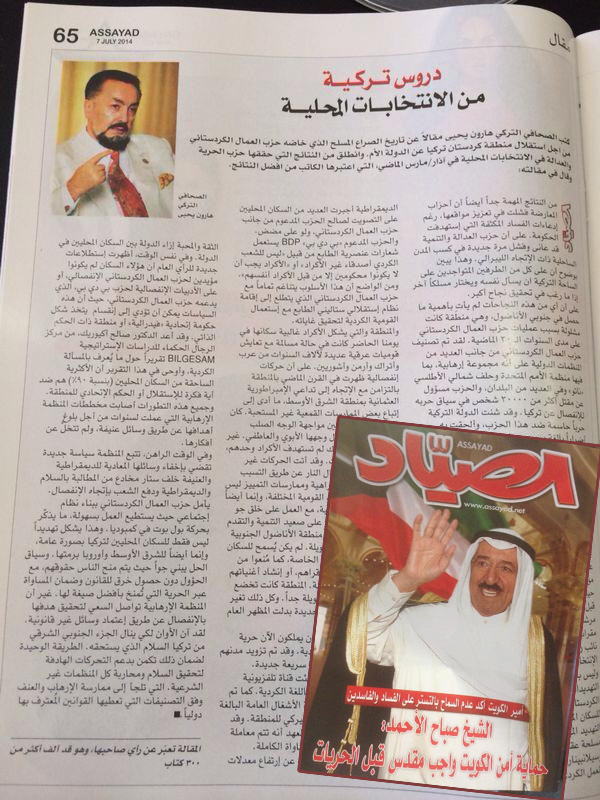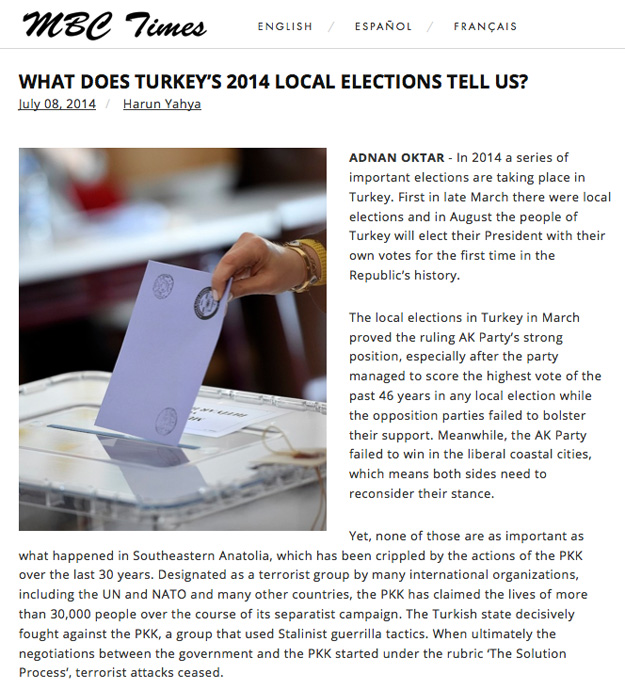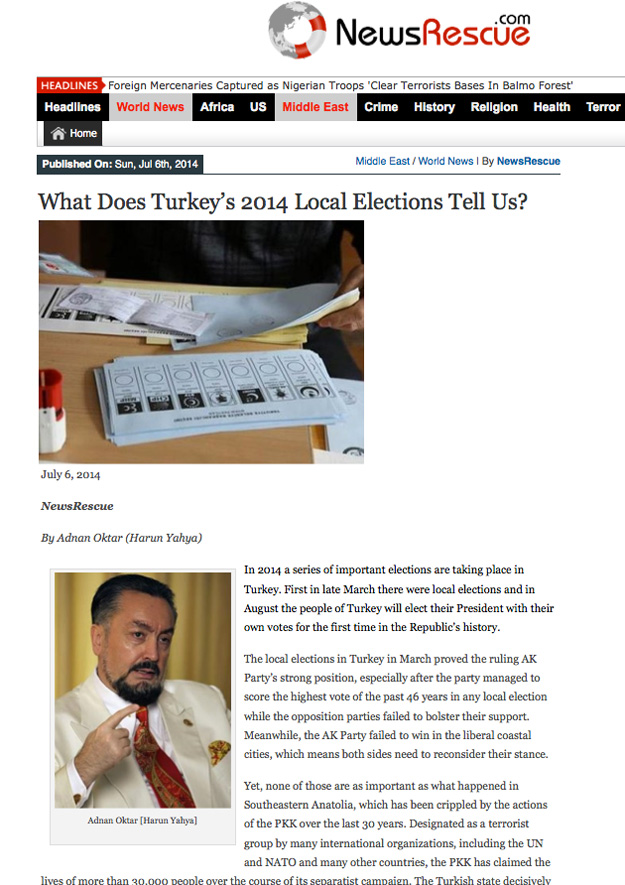


In 2014 a series of important elections are taking place in Turkey. First in late March there were local elections and in August the people of Turkey will elect their President with their own votes for the first time in the Republic’s history.
The local elections in Turkey in March proved the ruling AK Party’s strong position, especially after the party managed to score the highest vote of the past 46 years in any local election while the opposition parties failed to bolster their support. Meanwhile, the AK Party failed to win in the liberal coastal cities, which means both sides need to reconsider their stance.
Yet, none of those are as important as what happened in Southeastern Anatolia, which has been crippled by the actions of the PKK over the last 30 years. Designated as a terrorist group by many international organizations, including the UN and NATO and many other countries, the PKK has claimed the lives of more than 30,000 people over the course of its separatist campaign. The Turkish state decisively fought against the PKK, a group that used Stalinist guerrilla tactics. When ultimately the negotiations between the government and the PKK started under the rubric ‘The Solution Process’, terrorist attacks ceased.
However, the terrorist organization proved that it would continue its policy of fear and intimidation. Indeed, before the metropolitan municipality election held in Ağrı for a second time on June 1st and after the cancellation of the main election, PKK again resorted to violence. PKK members stoned the AK Party Provincial Directorate Building and an AKP election bus. As a result two people were wounded. PKK martyred the village rangers, raided the worksites in Ağrı and the entire region, abducted the workers and carried out attacks against the security forces. The message conveyed by these terror acts to the local people was: “If you don’t vote for us, violence will go on. Do not think this is over!” BDP repeated its win in Ağrı during elections under these types of circumstances.
Under these anti-democratic conditions many locals were compelled to vote for the BDP, albeit reluctantly. The BDP uses racist rhetoric that clearly plays into the hand of the PKK, which seeks to build a Marxist autonomous regime by using Kurdish nationalism as leverage.
The region, mostly populated by our Kurdish citizens today, has been a peaceful abode of respectful co-existence to many different ethnicities for thousands of years that included Arabs, Turks, Armenians and Assyrians. However with the appearance of separatist movements following the Ottoman Empire’s weakening, the locals were subjected to some undesirable oppressive policies of the ruthless face of the state, rather than its fatherly and affectionate side. However, this policy of oppression targeted not only the Kurds, but all the minorities. Illegal organizations incited hatred and discrimination against different ethnical and religious groups. In terms of development and urbanization, Southeastern Anatolia had been neglected for far too long. The locals were simply prevented from enjoying their basic rights such as speaking their own language, naming their own villages, singing their own songs, or publishing their own books. The region was ruled according to a state of emergency law for a very long time.
With the new outlook introduced in 2002, the locals are free to learn Kurdish and enjoy a new state TV Channel broadcasting in Kurdish. Recent policies prove that everyone is treated and seen equal. The new airports, dams, highways and booming industries have already changed the landscape and a significant portion of $350 billion have been additionally allocated for more public works.
All these developments produced a surge of trust and love in the locals for the state. Meanwhile, reliable polls show that they didn’t approve the PKK or its separatist policy that could lead to a federal government or autonomous region. The changes in the region crushed the terrorist organization’s plans. At the moment, they pursue a new policy of hiding their anti-democratic and violent methods behind a false veil of demand for peace and democracy, and pushing the people toward separation.
The PKK wishes to build a social system where they can easily operate, one that is reminiscent of Pol Pot’s Cambodia and which is also a threat to entire Middle East and Europe. The Solution Process is building an atmosphere where people are being granted their rights, illegalities are being prevented and equality is being ensured through the utmost freedom.
It is high time for the Southeastern part of Turkey to get the peace it deserves. The best way to ensure that is by supporting moves aiming toward peace and fighting all illegal organizations that resort to terror and violence in line with internationally recognized laws.
Adnan Oktar's piece on MBC Times & News Rescue & Assayad:
http://www.mbctimes.com/english/what-does-turkeys-2014-local-elections-tell-us
http://newsrescue.com/turkeys-2014-local-elections-tell-us/#axzz36iJ3J055


